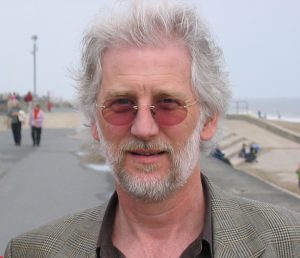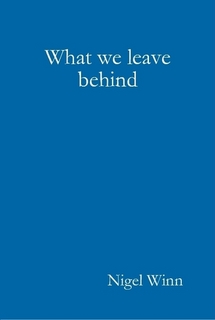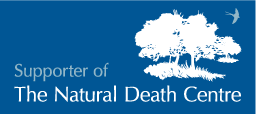My dad, Nigel Winn, died quite suddenly of cancer in 2006 aged 56. Since his death I have been meaning to collect his writing and publish a selection of his poetry. It’s taken me ten years to make time for this, in between having a daughter, getting married, building a house, chasing and holding onto employment and also trying to come to terms with the loss, too.
Dad left behind a collection of poems, a short play and other pieces of writing. He was a bricklayer and carpenter most of his life but started writing actively during the period 1996-2006. During that time, he studied for a BA in English Literature at the University of Lincoln, where he gained a First Class degree. He went on to teach at the university, and was popular among students. Following his death, colleagues established the annual Nigel Winn Memorial Prize for Creative Writing.

His work is quite autobiographical and therefore especially meaningful to those who were close to him. I used Lulu to self-publish this selection of his poetry. It’s very satisfying for me and my family to have a physical copy of his published work and I think that people who knew Nigel may like to purchase a hardback copy of the book, too. I make £0.06p on every copy sold because Lulu won’t allow me to reduce the author’s profit to £0 for some reason. A PDF proof of the book can be downloaded here. Thank you for reading it. He was a really good man.
The Natural Death Centre
As dad was dying I came across a book that helped us in the last weeks of his life and in making the arrangements for his burial. Reading The Natural Death Handbook guided us in what we could do for dad prior to and following his death. It gave us the confidence and basic knowledge of what signs to look for as dad was dying, how to care for his body, and the details of a good undertaker, who allowed us to create the funeral on our terms.
After his last breaths that Spring evening, we removed the catheter and the syringe driver; we washed and laid him out peacefully. Neighbours came to visit him and say goodbye. He remained with us overnight and the undertaker came the next day. We carried him out of the house together, into the back of the undertaker’s car. A few days later, Luke and I helped dig his grave. On the day of the funeral, dad was brought back to the house in the willow coffin he had asked for and mum decorated it with flowers. Members of the family gathered at the house and then we carried his body through the village to the church which was full of his friends.
The vicar said a few words, but left the service largely to us. Afterwards, we took dad outside to the small burial ground, lowered the coffin and shovelled soil over him. Several people remained to fill the hole. It felt right. The least we could do.
~~
Over the years, I’ve thought about the funeral and how the Natural Death Centre and the work they do had such a profound influence at such an important moment in our lives. I’m so grateful for that and pleased to be a supporter of their work.
Here’s a talk by Claire and Rupert Callender, one of the Trustees of the Natural Death Centre.


Great to see this. Labours filled with love are very important. Can’t wait to read your Dad’s work. Proud of you. R.
This is a really lovely tribute Joss. Thanks for sharing.